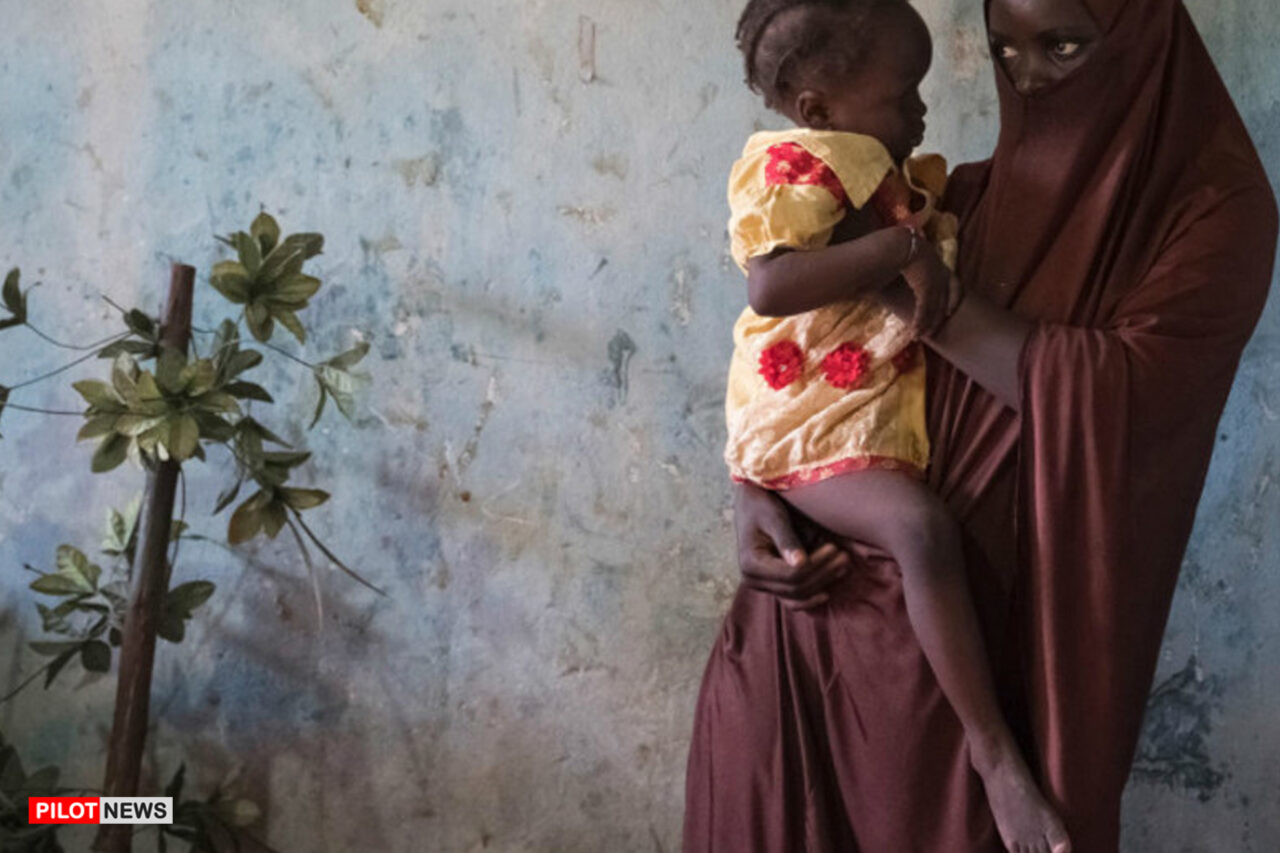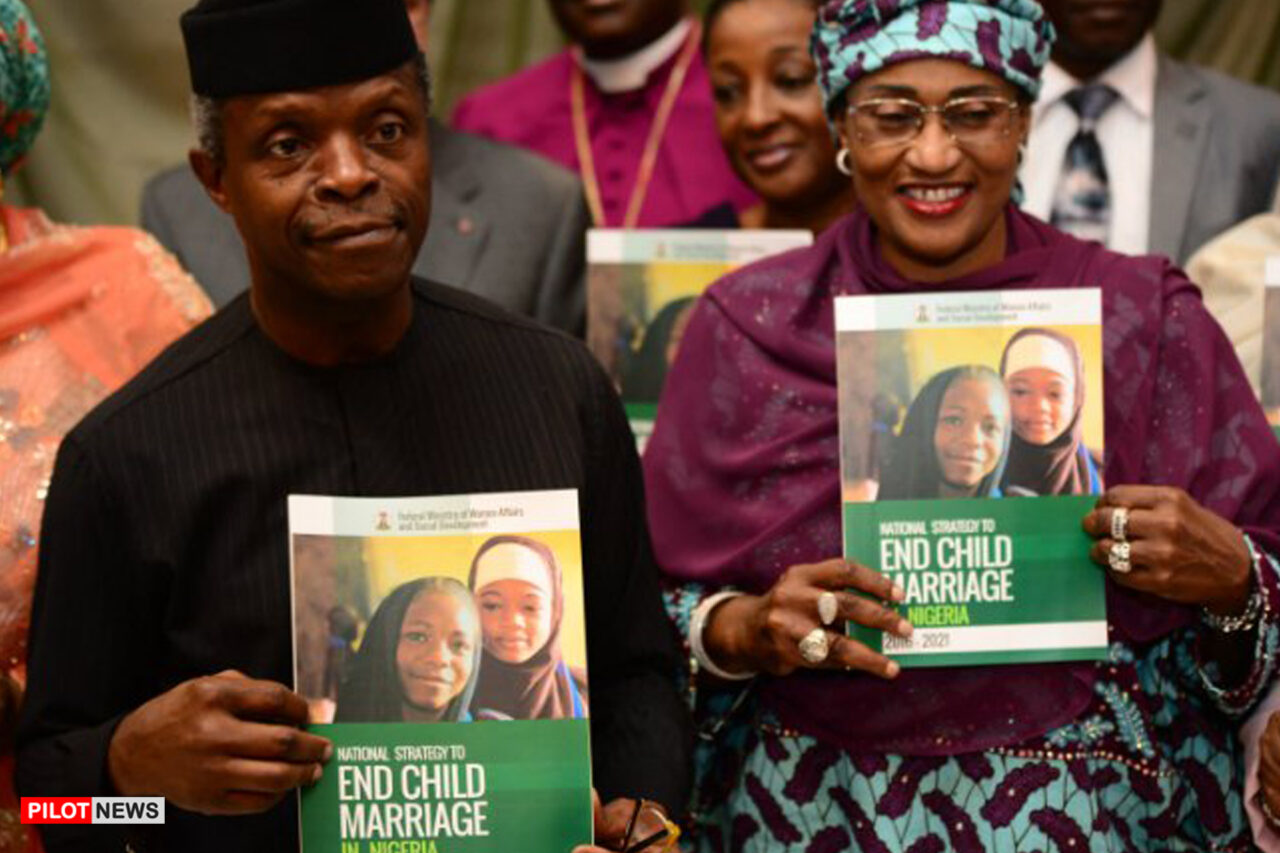The story of Wasila Umaru and her 35-year-old husband in 2014 is one of the most sordid cases of child marriage to have spurred out of Nigeria after the murder of 12-year-old Hauwa Abubakar by her husband in 1984. Although these incidents are separated by three decades, the circumstances are similar and both resulted in the death of a spouse.
Both girls were from poor conservative Islamic families and had been forcefully married off by their parents to significantly older men who assaulted them. Wasila and Hauwa were underaged girls conditioned to negative social norms. However, the turn of events in both cases differed. while Wasila resorted to spicing her husband’s meal with rat poison and a jail term. Hauwa suffered a more horrifying fate. The young girl was axed to death by her husband.

The multigenerational cycle of child marriage has grown into a hex with high national prevalence. It is a practice that cuts across different regions and ethnic groups in the country albeit with a higher ratio in the north.
Now, children, particularly girls are living are one of the country’s most perilous times. A period laced with hunger, kidnapping, armed conflict, displacement, and economic recession. And in a country where girls are considered a treasure or an option in the fight for survival by millions of households, it might be easier to boil the ocean than for Nigeria to eliminate child marriage before its deadline elapses, here is why.
Poverty exacerbates vulnerability
While Nigeria’s commitment to eliminate early child marriage will elapse by 2030, the 2017 Multiple Indicator Cluster Survey (MICS) stated that over 18.5% of girls could still get married before age 15.
According to UNICEF report, the country is already home to 22 million child brides, the highest number in West Africa, per UNICEF 2018 report. This accounts for 41% of all child marriages in the region. Between 2012 and 2018, 18 percent of females in Nigeria were married before the age of 15, and 44 percent of girls before the age of 18.
Despite the persistent call for an end to child marriage, the phenomenon continues to exist in parts of the country. Most cases are triggered either by the anxiety of parents to protect the chastity of their daughters or the desire to ensure that they are provided for. In other cases, these girls are used as pawns in a scheme to escape poverty.
Currently, Nigeria’s poverty is grim. The Nigerian National Bureau of Statistics in 2020 said 83 million people are living below the poverty line of N137,430 per annum, almost half of the country’s total population. This situation makes this period an unfavorable one for young girls.
Negative social norms condition parents and girls to see child marriage as a way out of penury. Across the country, a son-in-law is expected to provide economic support for the family of his bride.
Child marriage is a result of entrenched poverty and patriarchy. It deprives young girls of their dreams and violates their rights.
Child protection law hasn’t been fully adopted
Nigeria adopted the National Child Rights Act in 2003. This was to incorporate the UN Convention on the Rights of the Child. But as a federal republic, the framework is only effective in Abuja and applies as a template in the 36 states.
The act requires enactment in a state to be operational in that state. Also, the 1999 constitution conserved the right to dictate marriage-related issues with the state. This implies that the legislature in each of the 36 states must adopt the CRA for it to be applicable nationwide.
However, only 25 states have domesticated the CRA. 11 states, all in the north of Nigeria with a majority Muslim population and Sharia law are yet to domesticate the act.
This region has the highest rate of early marriage in the country where 48 percent of girls were married by age 15 and 78 percent were married by age 18.
The bill has been drafted in Gombe, Kebbi, and Yobe state and is to be reconsidered by Jigawa legislature, according to Premium Times. Jigawa state had initially enacted a Child Rights Law (CRL) but subsequently repealed the law.
Religion, coupled with ethnic and cultural diversity play critical roles in keeping the child protection laws at bay in these states.
Loopholes in prohibition laws
Despite using the UN Convention on the Rights of the Child as the template for drafting the child rights bill. The framework is not entirely sufficient to dissuade offenders. This is due to the existence of certain contradictory policies and loopholes.
While the CRA set the legal age at 18 years, defines child marriage as a union between parties below the age and criminalizes child marriage and betrothal, section 262 of the 1999 constitution conferred the Sharia court with the power to decide on “any question of Islamic personal law regarding a marriage concluded by that law.”
But the Sharia law did not specify a specific legal age for marriage but rather, it banks on fluid definitions of maturity such as puberty and physical growth. And these parameters only strengthen and permits child marriage in the country.
Also, section 18 of Nigeria’s Marriage Act (MA) can be easily interpreted as enabling child marriage. The act states that the marriage of a person under 21 is permissible if written consent is provided by the guardian or parent of the party involved.
“If either party to an intended marriage, not being a widower or widow, is under twenty‐one years of age, the written consent of the father, or if he is dead or of unsound mind or absent from Nigeria, of the mother, or if both be dead or of unsound mind or absent from Nigeria, of the guardian of such party, must be produced annexed to such affidavit as aforesaid before a license can be granted or a certificate issued,” the section reads.
This can be described as permitting child marriage even though the age of maturity is pegged at 21 years. The existence of such loopholes provides would-be offenders with constitutional provisions to bank on rather than deter them.
- Breaking: Ohanaeze President General, George Obiozor, confirmed dead - December 28, 2022
- US to support NDLEA on improved intelligence gathering capacity - December 27, 2022
- Why diversified HIV/AIDS prevention tools matter for women - December 26, 2022


